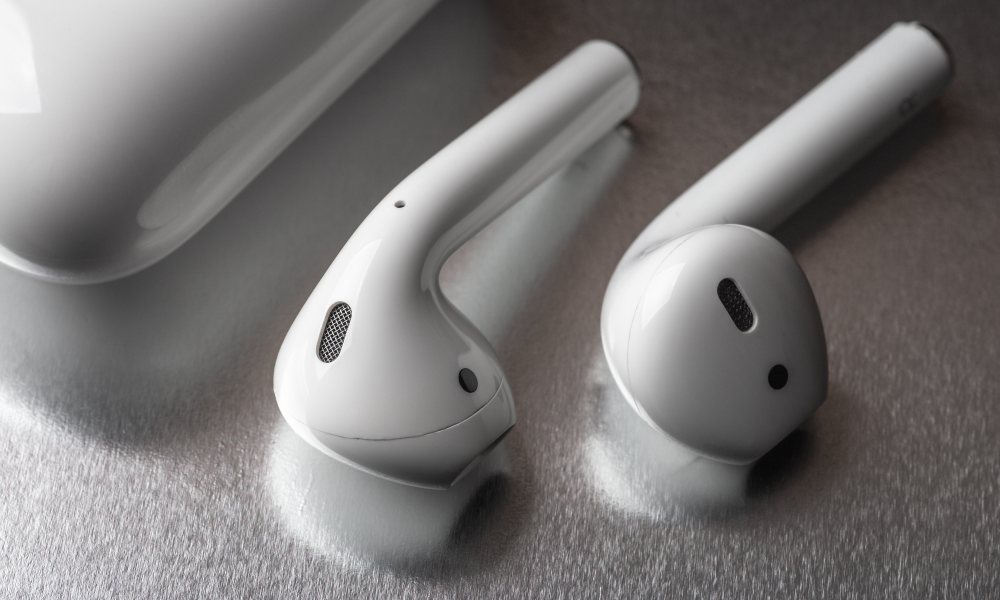Amazon Plans to Challenge Apple’s AirPods with Its Own Alexa Wireless Earbuds
 Credit: DedMityay / Shutterstock
Credit: DedMityay / Shutterstock
Toggle Dark Mode
Since the day that they first went on sale in late 2016, Apple’s AirPods have dominated the true wireless earbuds market almost without rival. For months Apple couldn’t make them fast enough to keep up with demand, and they never really got stale — well over a year after their release, AirPods were still responsible for 75 percent of wireless headphone sales. These days, the iconic white earbuds can be seen almost everywhere, and if the popularity of the originals are any indication, Apple’s dominance is only going to continue with the release of the second-generation AirPods last month, and more recently, the similarly-equipped Powerbeats Pro from its Beats brand.
The success of AirPods has been enough to make other venerable headphone makers throw in the towel, but despite this, it seems that Amazon thinks that it will be able to challenge Apple’s market dominance with its own new true wireless, Alexa-equipped earbuds, according to a new report from Bloomberg.
According to sources familiar with Amazon’s plans, the Seattle company is planning to produce its first Alexa wearable in the form of wireless earbuds that will “mirror” the AirPods. Amazon is planning to have them ready in the second half of this year, and sources say that will “look and act similar to AirPods,” with Amazon hoping to differentiate them based on better sound quality, and support for its more popular voice assistant.
The project is reportedly one of Amazon’s most important initiatives in its Lab126 hardware division, alongside an Alexa home robot that it’s been working on since at least last year. Not surprisingly considering Amazon’s focus, the goal of the “AlexaPods” will be to allow users to order products from Amazon as well as accessing music, weather, and other information, simply by calling out “Alexa.” Sources also say that there will be physical gesture controls for calls and music.
The earbuds will still need to be paired with a smartphone in order to actually connect to Amazon’s servers, since size and battery life constraints would make it virtually impossible to incorporate cellular connectivity directly into the earbuds. While being able to call up Alexa from a set of wireless earbuds would be fairly easy to do on the much more open Android platform, accomplishing this for iPhone users may also be considerably more difficult due to iOS limitations, suggesting Amazon’s new ‘pods may be a tougher sell for iPhone users, and making it more difficult to see how users might prefer them to Apple’s own much more tightly-integrated AirPods. Apple is also very unlikely to do Amazon any favors here in terms of providing easier integration for a competing product.
That said, Amazon has a long history of undercutting the competition when producing its own consumer hardware, and if it can achieve its goals of providing better sound quality, the product could attract some slight interest. However, one of the often under-appreciated features of Apple’s AirPods is the engineering that has gone into the W1/H1 chips to provide synchronized but independent Bluetooth connectivity to each earbud, making for a much more reliable and seamless user experience. By comparison, every other competing product uses Near-Field Magnetic Induction (NFMI), which has only a single earbud acting as the “master” to handle the Bluetooth connection, which is then passed to the other “slave” earbud using magnetic induction through the listener’s head. Amazon doesn’t have nearly the expertise in hardware development that Apple does, suggesting that its wireless earbuds will likely need to use similar technology, which has already proven itself much less reliable than Apple’s W1/H1 chips.
Sources also suggest that Amazon has faced some delays in developing the product. While there are already working prototypes being tested, Amazon has been struggling to find supply and manufacturing partners who can handle the mass production.
[The information provided in this article has NOT been confirmed by Apple and may be speculation. Provided details may not be factual. Take all rumors, tech or otherwise, with a grain of salt.]






